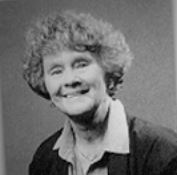Related Research Articles
The Left is a democratic socialist political party in Luxembourg. On the political spectrum, it is considered a left-wing to far-left political party. The Left is associated with The Left in the European Parliament – GUE/NGL group in the European Parliament but does not have any members. The party participates in the Party of the European Left. The Left wishes to transition Luxembourg from a constitutional monarchy into a republic.
Luxembourg Rugby Federation is the governing body for rugby union in Luxembourg. It was founded in 1974 and became affiliated to the International Rugby Board in 1991. Luxembourg Rugby team plays its matches at the Stade Josy Barthel in Luxembourg-City. Luxembourg are ranked 59th in the world according to the International Rugby Board.
The Division of Honour is the second-level football league in Luxembourg. It lies below the National Division and above the 1. Division.
UFL or ufl may refer to:
Émile Krieps was a Luxembourgish resistance leader, soldier, and politician. A member of the Democratic Party, Krieps served in cabinets under Pierre Werner and Gaston Thorn.

Lesbian, gay, bisexual, and transgender (LGBT) people in Luxembourg have the same legal rights as non-LGBT people. Partnerships, which grant many of the benefits of marriage, have been recognised since 2004. In June 2014, the Luxembourgish Parliament passed a law enabling same-sex marriage and adoption rights, which took effect on 1 January 2015. Additionally, discrimination on the basis of sexual orientation and "change of sex" in employment, healthcare and the provision of goods and services is outlawed, and transgender people are allowed to change their legal gender on the basis of self-determination.

The Council of State is an institution in Luxembourg that advises the national legislature, the Chamber of Deputies as well as the Government. Until 1 January 1997, it was also the country's supreme administrative court, but this function was ceded to the newly created Administrative Tribunal and Administrative Court.
Jeanne Dambendzet is a Congolese politician. She served in the government of Congo-Brazzaville from 1989 to 1991 and again from 1997 to 2009. Since 2009 she has been the First Vice-President of the Economic and Social Council, a state institution. She is a member of the Congolese Labour Party (PCT) and has been National Executive Secretary of the Women's Organization of Congo, the PCT's women's organization, since 2013.
Tony (Antoine) Krier (1906–1994) was a Luxembourg photographer who worked as a photojournalist for the Luxemburger Wort, a daily newspaper. He was also court photographer for the Grand Ducal Family of Luxembourg. He is remembered for his touristic photographs of the Luxembourg City and of the country as a whole.
The following lists events that happened during 1946 in the Grand Duchy of Luxembourg.
Françoise Bertrand, is a Canadian business personality. She is the first woman to head a North American television network, as CEO and president of Télé-Québec, and was the first woman to serve as chairperson of the Canadian Radio-television and Telecommunications Commission (CRTC), a position she held from 1996 to 2001. Bertrand was inducted into the National Order of Quebec in 2008 and appointed an Officer of the Order of Canada in 2013. She has served as president and CEO of Fédération des chambres de commerce du Québec from 2003 to 2016, the first woman to hold the position. She is currently the first woman to serve as Chairperson of the Board of Directors of Via Rail Canada Inc., a position she has held since April 2017.

The Women's International Democratic Federation (WIDF) is an international women's rights organization. Established in 1945, it was most active during the Cold War when, according to historian Francisca de Haan, it was "the largest and probably most influential international women's organization of the post-1945 era". Following the dissolution of the Soviet Union in 1991, its headquarters were moved from Berlin to Paris. In 2002, with the election of Márcia Campos as president, the office relocated to Brasília. Subsequently, in 2007 the WIDF secretariat was located in São Paulo. Since 2016, the president has been Lorena Peña of El Salvador. The WIDF's magazine, Women of the Whole World, was published in six languages: Arabic, English, French, German, Russian, and Spanish.

Claire Bonenfant was a Canadian politician and champion of feminist rights. A Chevalier of the Ordre national du Québec, Bonenfant was president of the Quebec Status of Women Council. The University of Laval's "Claire Bonenfant Chair in Women's Studies" is named in her honour.

The National Council of French Women is a society formed in 1901 to promote women's rights. The first members were mainly prosperous women who believed in using non-violent means to obtain rights by presenting the justice of the cause. Issues in the first half century included the right to vote, legal equality between husband and wife, paternal child support, social support for children, equal employment opportunity, equal pay for equal work and acquisition of citizenship on marriage. The National Council of French Women is affiliated with the International Council of Women (ICW). Now the oldest of French feminist organizations, it continues to work for causes related to the rights of women.
Nelly Mbangu is a Congolese women's and children's rights campaigner. She has been involved in many non-governmental organisations in this field and co-founded a movement to bring together 30 organisations with similar aims. She is a woman human rights defender and the coordinator of the Help and Action for Piece - Aide et Action pour la Paix (AAP). Additionally Help and Action for Piece - Aide et Action pour la Paix (AAP) works on good governance topics, conflict resolution of land rights disputes. Those issues often affect women, for this reason Help and Action for piece links these topics together to positively impact the human rights situation in locally.

Véronique Bra Kanon is an Ivorian politician and vice-president of the National Assembly of the Ivory Coast. She was the first woman to be president of an Ivorian regional council, leading the council of Moronou from 2013 to 2018.
The Federation of Printing Workers of Luxembourg was a trade union representing workers in the printing and paper industries in Luxembourg.

Eugénie Hamer was a Belgian journalist, writer and activist. Her father and brother served in the Belgian military, but she was a committed pacifist. Involved in literary and women's social reform activities, she became one of the founders of the Alliance Belge pour la Paix par l'Éducation in 1906. The organization was founded in the belief that education, political neutrality, and women's suffrage were necessary components to peace. She was a participant in the 18th Universal Peace Congress held in Stockholm in 1910, the First National Peace Congress of Belgium held in 1913, and the Hague Conference of the International Congress of Women held in the Netherlands in 1915. This led to the creation of the International Committee of Women for Permanent Peace, subsequently known as the Women's International League for Peace and Freedom (WILPF). Hamer co-founded the Belgian chapter of the WILPF that same year. During World War I, she volunteered as a nurse and raised funds to acquire medical supplies and create an ambulance service.
The Association for Women's Interests was a women's organization in Luxembourg, founded on 14 January 1906. It was the first women's organization in Luxembourg.
References
- 1 2 3 4 Ruckert, Ali (2015). "Geschichte der Union des femmes luxembourgoises: 1945 - 2015" (in German). Union des Femmes Luxembourgeoises. Retrieved 12 November 2023.
- 1 2 3 "70e anniversaire de l'Union des Femmes Luxembourgeoises" (in French). RTL. 10 October 2015. Retrieved 12 November 2023.
- ↑ "Yvonne Useldinger s'est éteit". Tageblatt. 11 February 2009. Retrieved 12 November 2023.
- 1 2 3 "Claire Urbany-Feltgen (1901–1974)" (in German). Internationale Fraendag. Retrieved 12 November 2023.
- ↑ "Liste des membres - Associations membres - CNFL". CNFL - Conseil national des Femmes du Luxembourg (in French). Retrieved 12 November 2023.